Mission
The Marine Energy and Hydraulic Structures Group is committed to the development of environmentally friendly, sustainable, cost-effective and reliable cutting-edge technologies or solutions to effectively explore water resources and their vast potential, including the harnessing of marine and hydropower renewable energies, as well as to protect key infrastructures, assets and populations from natural hazards and to promote climate change resilience in the long term. Research activities focus on: marine and hydropower renewable energy assessment, development and testing of marine energy conversion technologies, design and testing of bottom-fixed and floating structures, aquaculture and mooring systems, risk assessment and reliability analysis, coastal protection interventions, nature-based solutions, breakwaters and ports design, assessment and mitigation of coastal risks, climate change adaptation pathways, dam engineering, among others. Furthermore, the group aims to provide cutting-edge knowledge and groundbreaking contributions to the design of hydraulic structures in general, including, dams, bridges, scour protections, water supply networks, water drainage systems, offshore structures, coastal structures, among many other examples, by means of both physical and numerical modelling. The group’s research lines aim to be aligned with the EU Green Deal strategy and the UN’s Sustainable Development Goals, as well as to promote the knowledge transfer towards the competitiveness of the stakeholders dealing with Marine Energy and Hydraulic Structures design, operation, maintenance and management.
Expertise
The main research areas are the development, modelling, design and optimization of technologies and solutions towards a vast array of fluvial, coastal and offshore applications. These range from marine renewable energy assessment and conversion to novel green-grey coastal interventions capable of withstanding the harshness of the sea environment in a context of climate change. The group also focus on research towards the multi-use of hydraulic infrastructures, e.g. combined aquaculture with offshore wind, wave and solar energy combined, among other examples. The group yields a vast expertise on optimised design, testing and development of Hydraulic Structures in general, from the fluvial to the offshore environment. This is possible due to the group’s top expertise in both physical modelling, with reduced-scale models tested in cutting-edge experimental facilities (wave basin, wave-current flume), and numerical modelling, via the application of a wide range of hydrodynamic and morpho-dynamic numerical codes (e.g., Delft3D, X-Beach, SWASH, Reef3D, HEC-RAS, PLAXIS 2D and 3D) as well as potential flow codes and advanced CFD models to assess soil-fluid-structure interaction and dynamics (e.g., BIEM, RANS, SPH, Flow 3D). Fluvial and Met-ocean statistical models for multivariate extreme phenomena prediction are also included (R, Python). An integrated approach to the full-water cycle is also in the group’s scope, namely, by concerning research on water quality, water re-use and other engineering and environmental related topics.
Facilities and Equipment
The main activities are conducted within the Hydraulics Laboratory, at the Faculty of Engineering of the University of Porto. The facilities include a current flume with adjustable inclination, with 17 m in length, 40 cm in width and 60 cm in height, which is mainly used for fluid dynamics and sediment transport studies. There is also a 32.3 x 1.0 x 1.0 m wave-current flume, which is equipped with a wave piston-type paddle enabling the combined flow of waves and currents, to study 2D physical models of coastal structures, sediment transport and offshore foundations under regular and irregular sea-states. For both 2D and 3D models, there is a wave basin, 28 m long, 12 m wide and has a height of 1.2 m, with a central pit that enables to increase the water depth to 2.5 m. It is equipped with a multi-element piston-type wavemaker system capable of reproducing regular waves or irregular sea-states, including multi-directional waves. The wave basin has both active and passive absorption systems to reduce wave reflection. Auxiliary equipment includes resistive-type wave gauges, pressure sensors, a Qualisys motion tracking system, a LDA and ADVs, a 3D laser scanner, load cells and hydraulic pumps, a 3D printer, among others. There are also numerous simplified models, from a miniature wave flume to hydraulic circuits, made available for exposition and lecturing of visitors and/or students.
Research units and unit leaders:
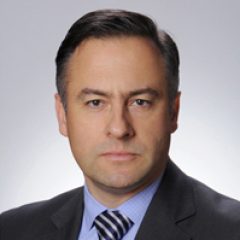
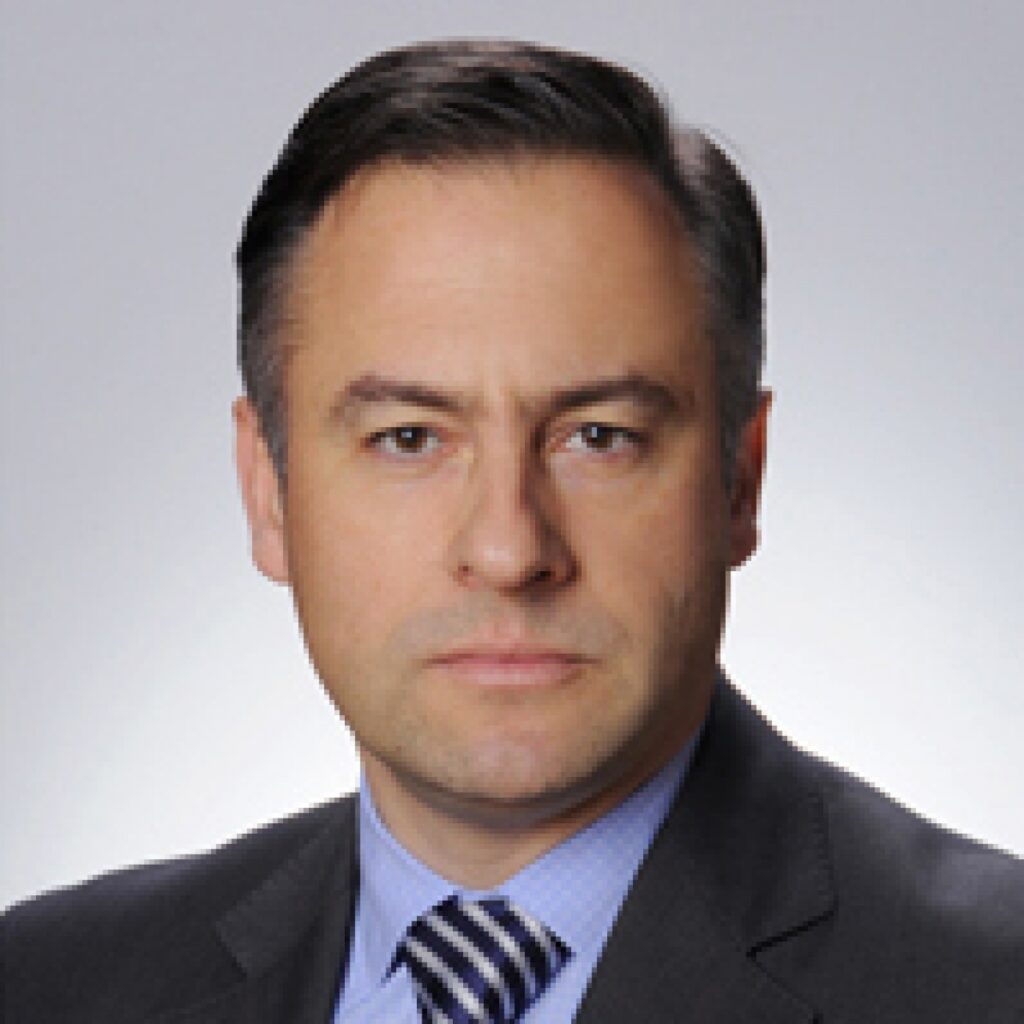
Francisco Taveira Pinto is a Full Professor at the Faculty of Engineering of the University of Porto, Director of the Hydraulics Water Resources and Environment Division of DEC-FEUP, Member of the board of the Water Resources Institute and President of the Portuguese Water Resources Association. He received his degree in Civil Engineering in 1989, his PhD in 2002 in Civil Engineering – Coastal Engineering and his Aggregation in 2007 all at FEUP. His research interests focus on coastal structures, physical modelling, coastal management, coastal dynamics and sea energy. He is author of more than 70 scientific publications in international journals.
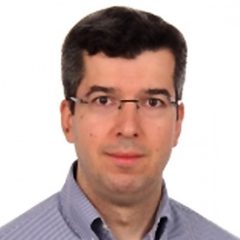
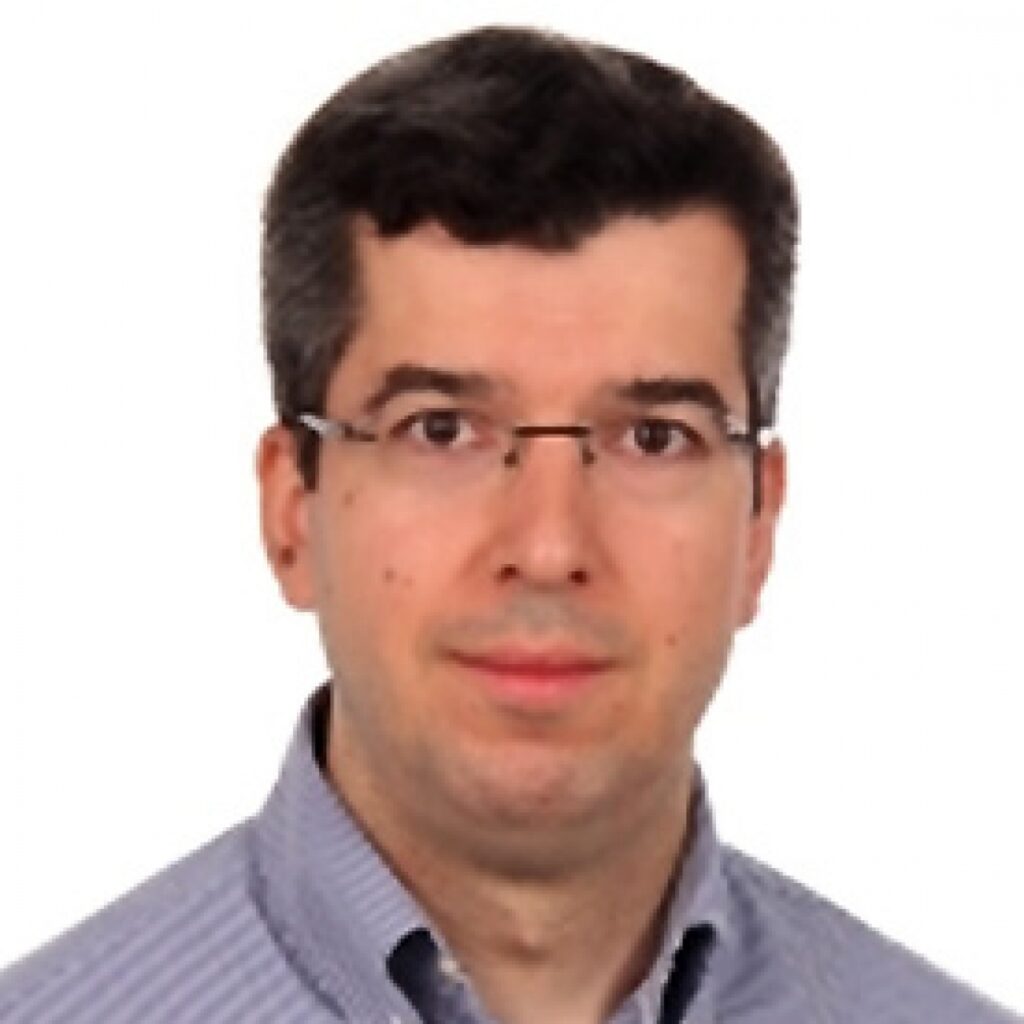
Paulo Rosa Santos is Associate Professor with Habilitation of the Department of Civil Engineering of the Faculty of Engineering – University of Porto. His main research field is the application of physical and numerical modelling to the study of offshore, port and coastal related topics. In the last 17 years, he collaborated in more than 45 R&D projects and consultancy studies in those fields. Supervisor/Co-supervisor of 35 finished M.Sc. Dissertations and 9 PhD students (ongoing) in the field of coastal engineering and marine renewable energy. Author of over 150 papers published in peer-reviewed scientific journals and conference proceedings (38 papers in Q1 journals). Chartered Engineer (2004), Senior Member (2013) and Specialist in Hydraulics and Water Resources (2019) by the Portuguese Engineering Council. Member of the Board of the Portuguese Water Resources Association – North Branch. PI, Co-PI or Researcher of 9 R&D projects in the field of ocean renewable energies and coastal engineering in the last 5 years (e.g., Atlantida, WEC4Ports, PORTOS, WECANet, ORACLE, SE@PORTS, HYDRALAB+, OPWEC, I.nano.WEC).
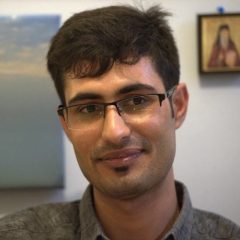
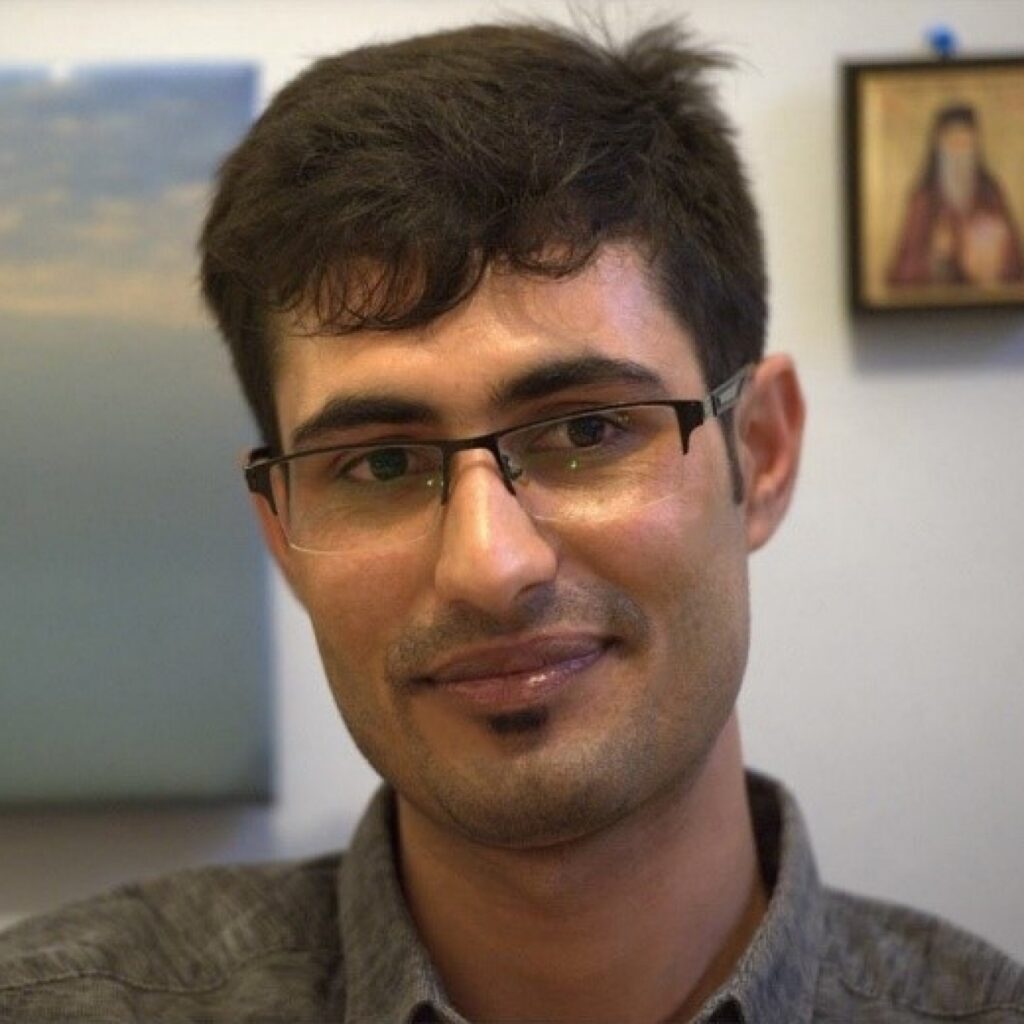
Ajab Gul MAJIDI is a doctorate (Ph.D.) researcher at the Faculty of Engineering of the University of Porto and a researcher at CIIMAR. Ajab is presently working in the research team of the project "WEC4Ports – A Hybrid Wave Energy Converter for Ports" (OCEANERA/0004/2019), funded by FCT/MCTES through national funds (PIDDAC). He got his MSc degree from Bursa Uludağ University in Turkey and developed his MSc thesis on the topic of Energy Production from Existing and Scaled Wave Energy Converters in the South-western Black Sea between 2018 – 2020. He was also involved in the Determination of Wave Energy Generation (Economic Wave Energy Potential) by Various WECs in the High Potential Regions of the Black Sea (TUBITAK Project) and Wave Spectra Climate of the Black and Azov Seas (RFBR -TUBITAK Bilateral Project). Both R&D projects are related to Coastal Engineering and Marine Renewable Energy. Ajab is author of several scientific peer-reviewed publications and conference papers.

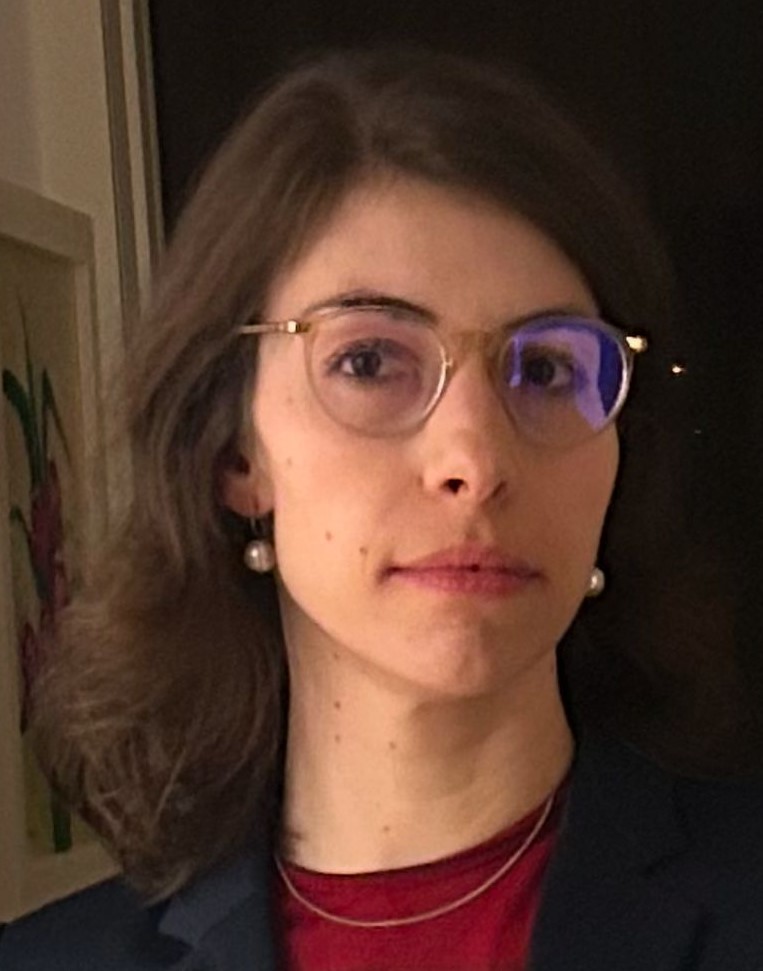
The author is a researcher at CIIMAR, funded by the FCT Individual Scientific Employment Stimulus (6th edition). She leads BriSK, integrating hydrological modeling, CFD, and climate projections to assess bridge scour risk. She is an active member of several scientific organizations, including OE, PIANC, IABSE, IAHR, APRH, RISCOS, and EGU. She serves on the Advisory Board of Water (MDPI), the AQUARIUS Expert Team, the IAHR Europe Leadership Team, and the Panel of Experts for the IAHR Label for Water Training and Education (UNESCO-IHP). An Associate Editor of three journals, she has authored and co-authored several scientific publications.

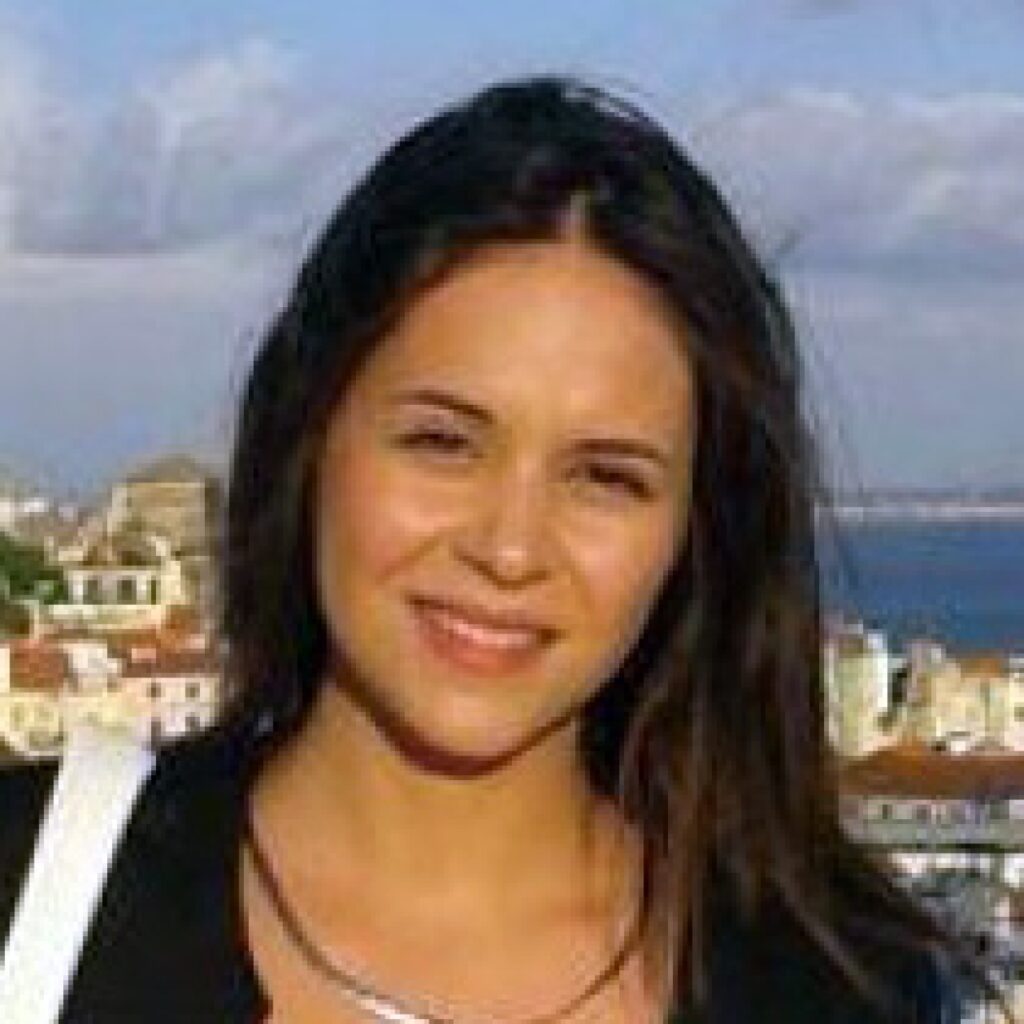
Andreia Moreira is a PhD researcher at UPorto (Portugal), graduated from the same institution. She developed her master thesis project in entrepreneurial environment, on the topic of feasibility analysis of the construction of small and medium hydropower plants. From 2012 to 2015 she was dedicated to the Scourcoast project, in which she developed research on sustainable coastal protection techniques. She started conducting her doctoral studies in 2015, supported by a PhD scholarship granted by the Portuguese Foundation for Science and Technology. Since then, she has been developing her work on the adaptation and application of a numerical code, based on a weakly compressible formulation of the Smoothed Particle Hydrodynamics method, to simulate spillway flows. During her PhD research, she has been collaborating with the Saint-Venant Hydraulics Laboratory (LHSV), in France. Her research interests are towards the understanding of turbulent high-speed flows, dam safety and the development of numerical tools to spillway risk assessment and mitigation.

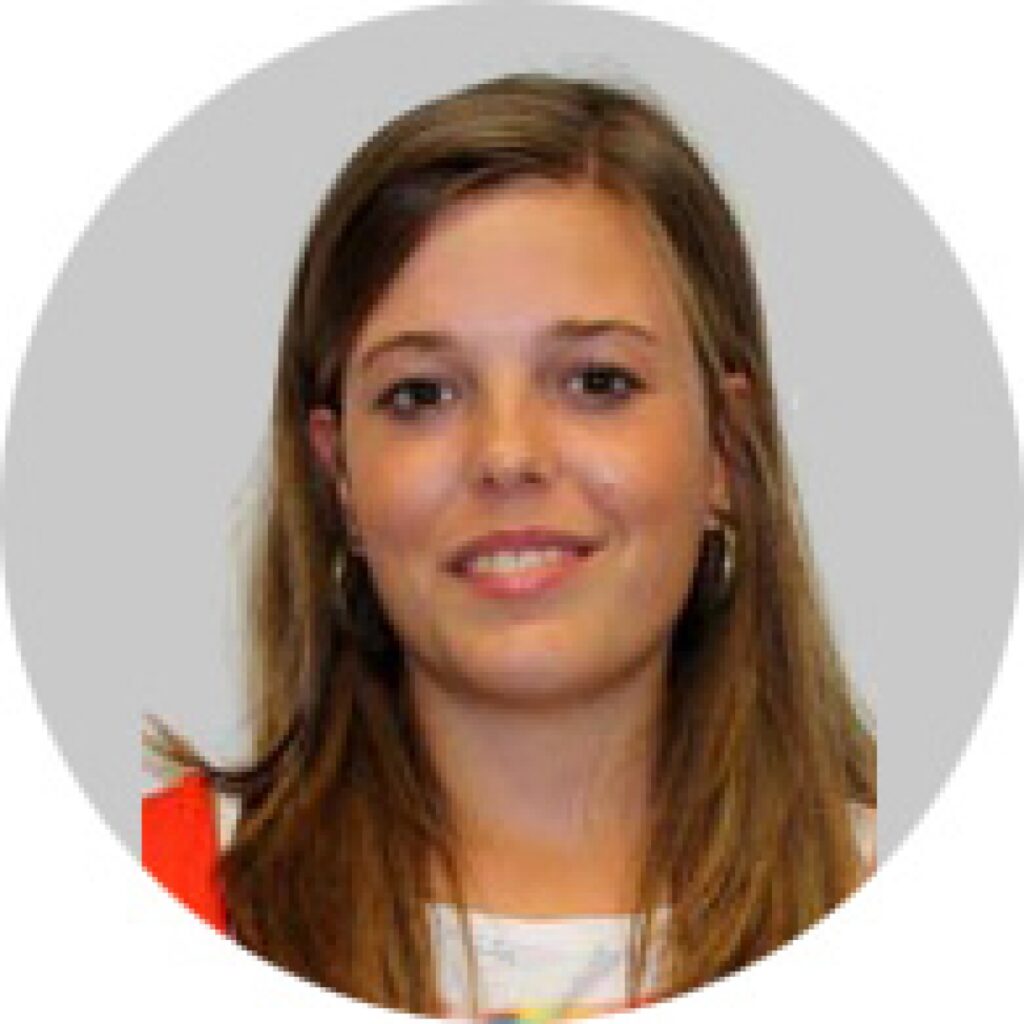
Beatriz Queirós is a PhD researcher at UPorto (Portugal), who graduated from the same institution. She developed her master thesis project in entrepreneurial environment, on the topic of SPH application to reproduce a real rubble-mound breakwater – the Port of Leixões Northern breakwater, Portugal. After graduating, from 2016 to 2018, she was working as a design engineer in a hydraulic company, where she consolidated her knowledge in water supply systems, as well as in wastewater systems. In addition, she had the opportunity to contact and use an extensive set of numerical tools on various projects. She started conducting her doctoral studies in 2018, supported by a PhD scholarship granted by the Portuguese Foundation for Science and Technology, and she is currently developing her PhD research work, which involves the study of rubble-mound structures, using advanced physical modelling techniques and also advanced numerical modelling tools, including the application of programs such as DualSPHysics. Her research interests are towards the comprehensive understanding of complex phenomena related to the interaction between incident waves and rubble.mound breakwaters and also the validation and improvement of the SPH DualSPHysics model with regard to the simulation of wave run-up and overtopping.
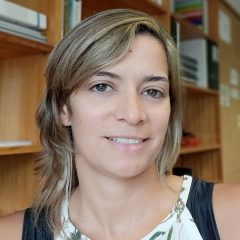
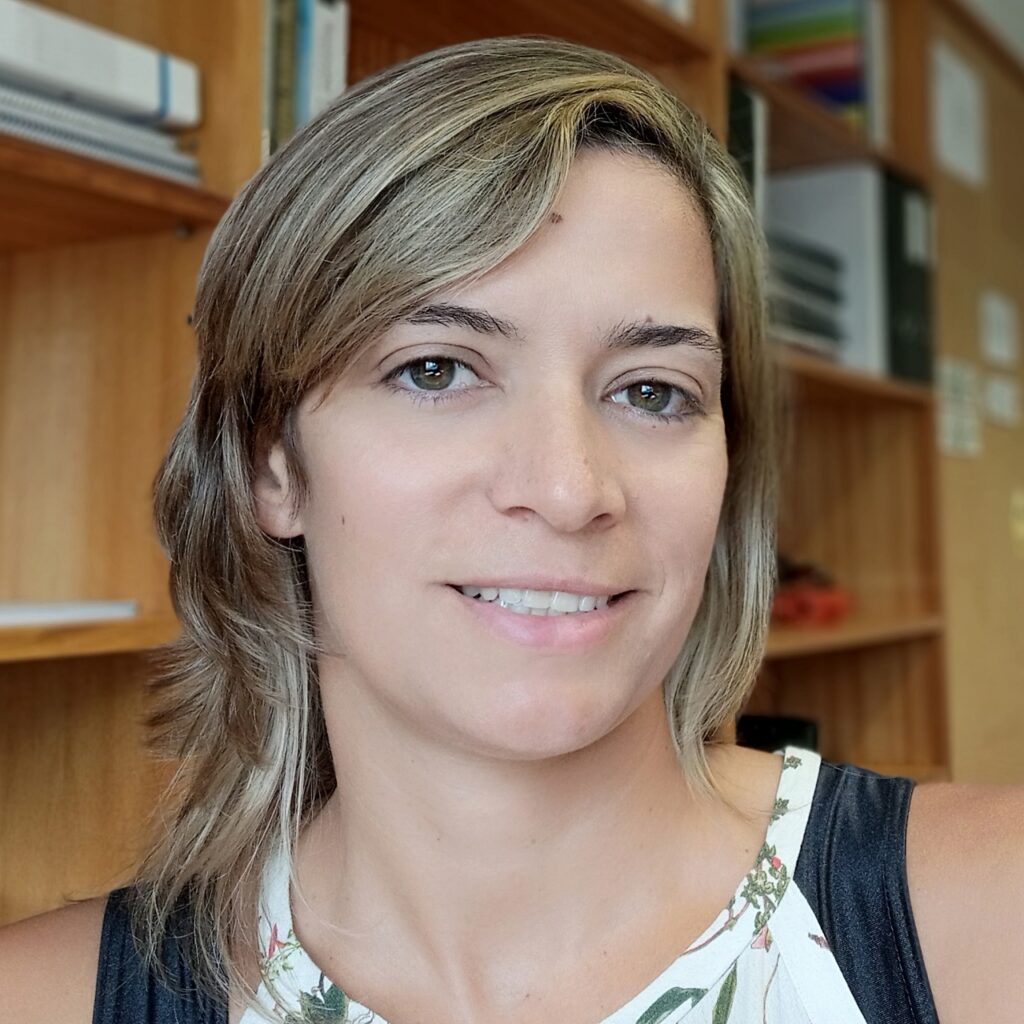
Invited Assistant Professor in the Civil Engineering Department of University of Porto, Faculty of Engineering, and a consultant and design engineer (effective member of the Portuguese Chamber of Engineers: professional card nr. 55737). She worked between 2008 and 2013, in SOPSEC,SA elaborating and managing projects of Civil Engineering and completed her PhD in 2012. She is the author and co-author of several publications in national and international journals, book chapters and in international conferences, related to the subject areas of water and water resources, water and wastewater treatment and environmental engineering.
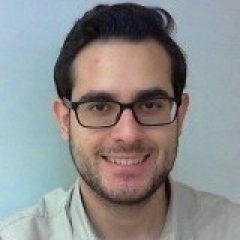
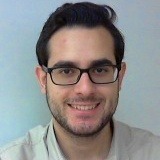
Ph.D. Daniel Clemente is a Junior Researcher at U.Porto and CIIMAR (Portugal), who studies marine renewable energy (MRE) since his M.Sc. Thesis on the E-Motions converter. Since 2017, he participated in the Se@Ports, I.nano.WEC and ATLANTIDA projects. In 2020, he received an FCT Ph.D. grant, which was successfully concluded in July 2022. His expertise includes 2D/3D physical modelling of wave energy converters, as well as numerical modelling through ANSYS Aqwa, DualSPHysics and SWAN softwares. His research interests focus on developing MRE technologies, potential applications, and beneficial synergies with other fields of research, from offshore aquaculture to coastal protection.

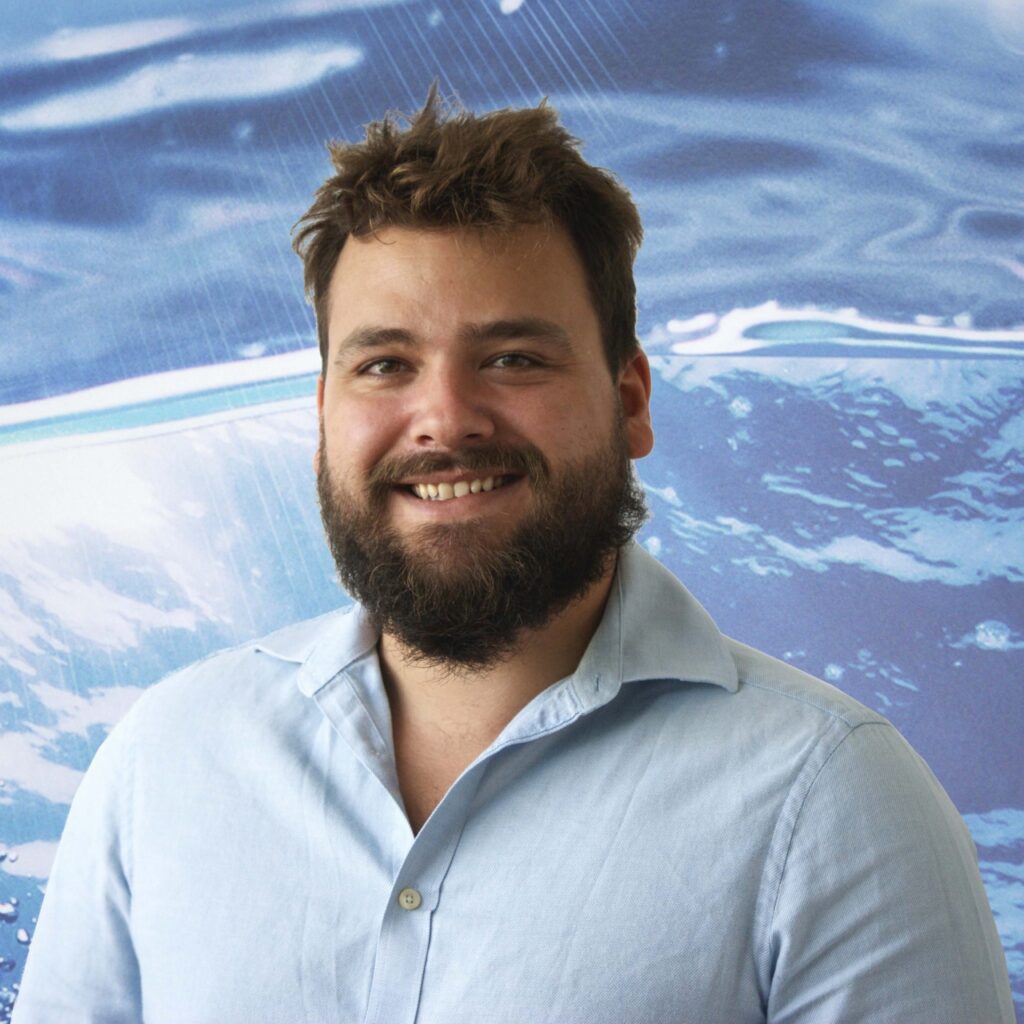
Born and raised in Natal, Northeast Brazil, he is passionate about coastal sciences, more especially, processes involving ocean waves. He holds a bachelor’s in Environmental Engineering from the Federal University of Rio Grande do Norte, with an exchange period at The University of Adelaide, Australia, with postgraduate studies in Physical Oceanography at the University of Sao Paulo and a Master’s in Water and Coastal Management at the universities of Bologna, Cadiz, and Algarve, within the Erasmus Mundus Joint Master’s Degree program. He also has professional experience in the private sector, working as a numerical modeler for coastal processes, and in research institutes such as LNEC, Lisbon, and IH Cantabria, Santander. He is currently holding a researcher contract with CIIMAR and pursuing his Ph.D. on Civil Engineering – Hydraulics and Coastal Engineering at the Faculty of Engineering of the University of Porto, as a fellow of the “la Caixa” foundation.
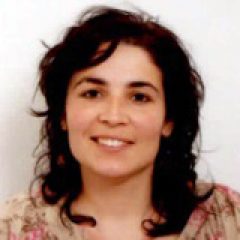
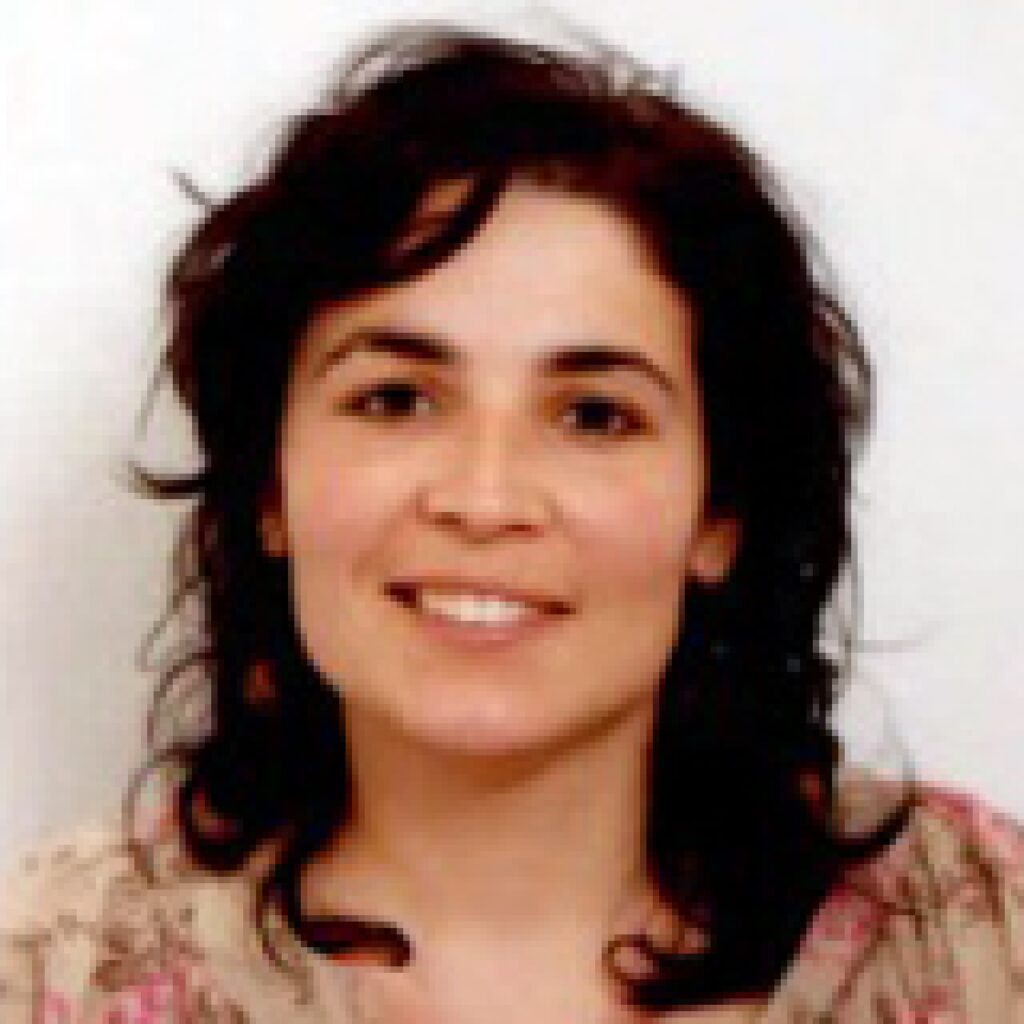
Elsa Carvalho is an Assistant Professor at Faculty of Engineering of Porto University and member of the Experimental Methods and Instrumentation committee of the International Association for Hydro-Environment Engineering and Research (IAHR). She completed her PhD in 2013 and since then has been dedicated to the study of sediment transport and the hydraulic structures. She is the principal investigator of a FCT project.
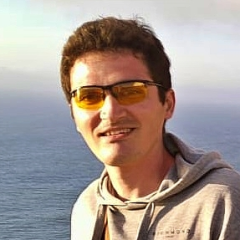

Esmaeil Zavvar was born in Tabriz, Persia, and holds a Bachelor’s in Civil Engineering and Master’s in Marine Structures. Now, he is a Ph.D. student at the Faculty of Engineering of the University of Porto (FEUP) with FCT scholarship since 1 Sep 2023. He has about 10 years of experience in civil engineering as a construction supervisor and site engineer. And about 9 years experience in Marine structure analysis on fixed and offshore floating structures. His academic experiences including some publications: some journal papers, book chapters, conferences, and books in high-ranked journals and universities. He is a reviewer in about 30 journals in Elsevier, Springer, SAGE, Taylor and Francis Group, reviewed above 300 papers since 2017. His research areas are fatigue and fracture, Structural analysis, Impact analysis, Offshore Floating Structures, Hydrostatic and Hydrodynamic analysis, Probabilistic and reliability analysis, and Strengthening methods with FRP and Concrete. Renewable energy, wind, and wave converters.
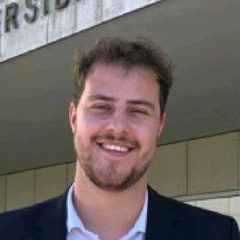
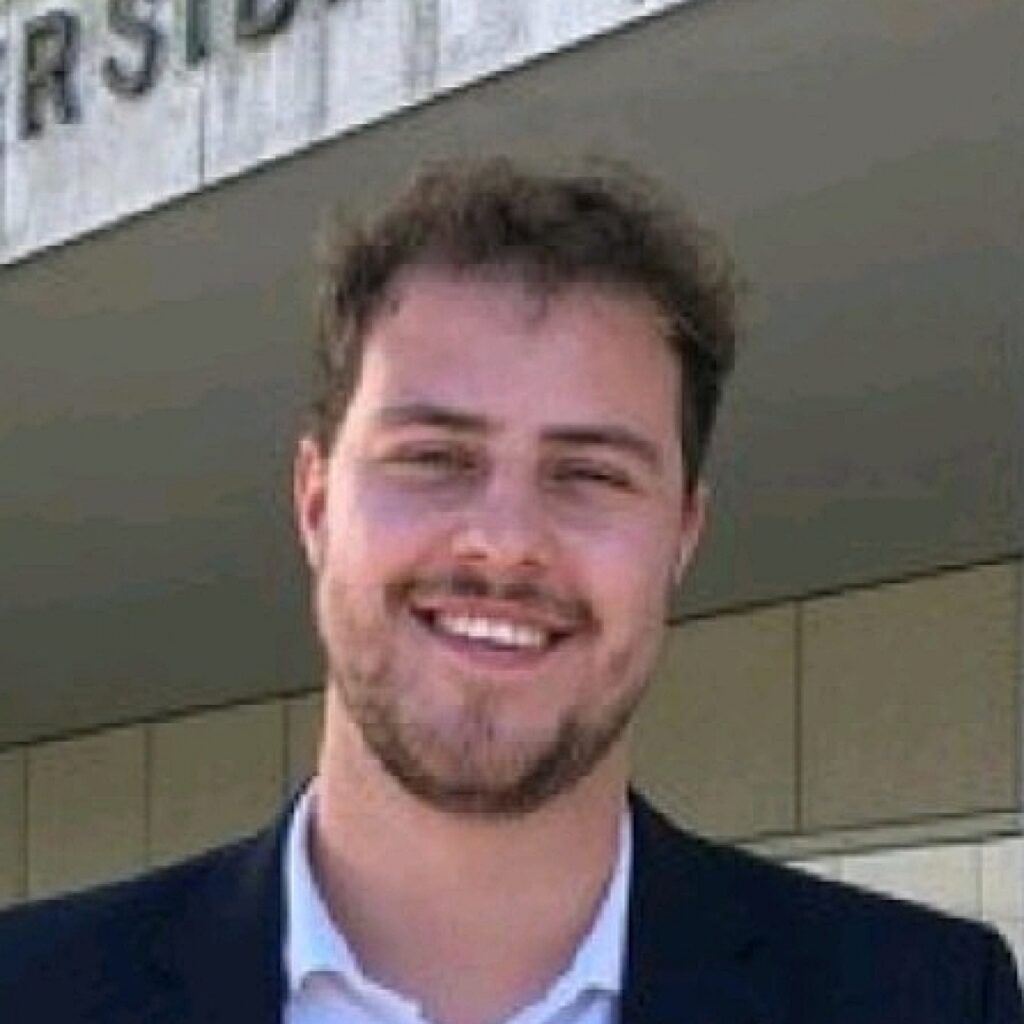
Filipe da Costa Miranda is a researcher at the Faculty of Engineering of the University of Porto (Portugal) who graduated from the same institution. He developed his master thesis project on the topic of scour around co-located marine energy harvesting technologies, as part of the project “POSEIDON – Damage Prediction and Design of Scour Protection in Complex Foundations for Marine Renewable Energy”. After graduating, he continued as a research fellow at the IHRH – Hydraulics and Water Resources Institute in the project “Aquabreak – Aquaculture Living Breakwater for Coastal Protection and Sea Decarbonization” in a joint venture with HAEDES Portugal, Lda., while still collaborating in the POSEIDON project.
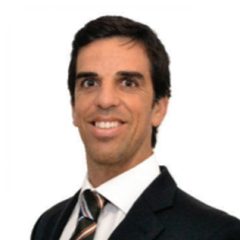
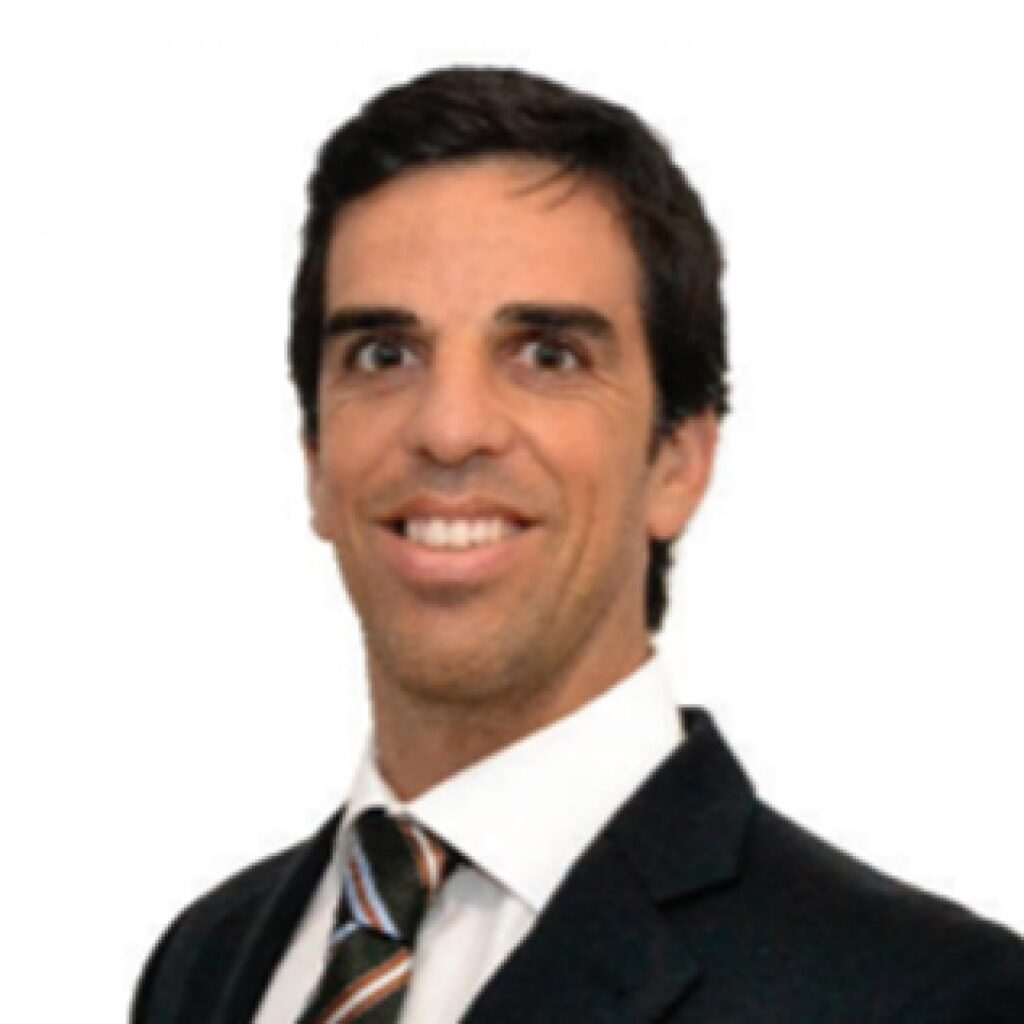
Filipe is a Chartered Coastal Scientist/Engineer with over 15 years’ experience working in Europe, South America, Africa and the Middle East on a variety of ocean, coastal and port engineering projects. Previous experience in consultancy includes planning, design and tender preparation for intakes and outfalls, small harbours and marinas, ports, LNG and crude oil terminals, coastal structures, artificial islands, navigation and mooring studies, numerical modelling of coastal processes and field data collection. Filipe worked for the government and private sectors in both engineering and research projects. He is currently working at the American University of Sharjah where he conducts research in the fields of ocean and coastal engineering.
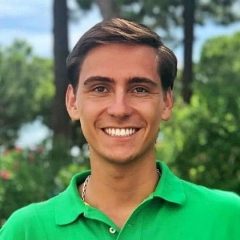
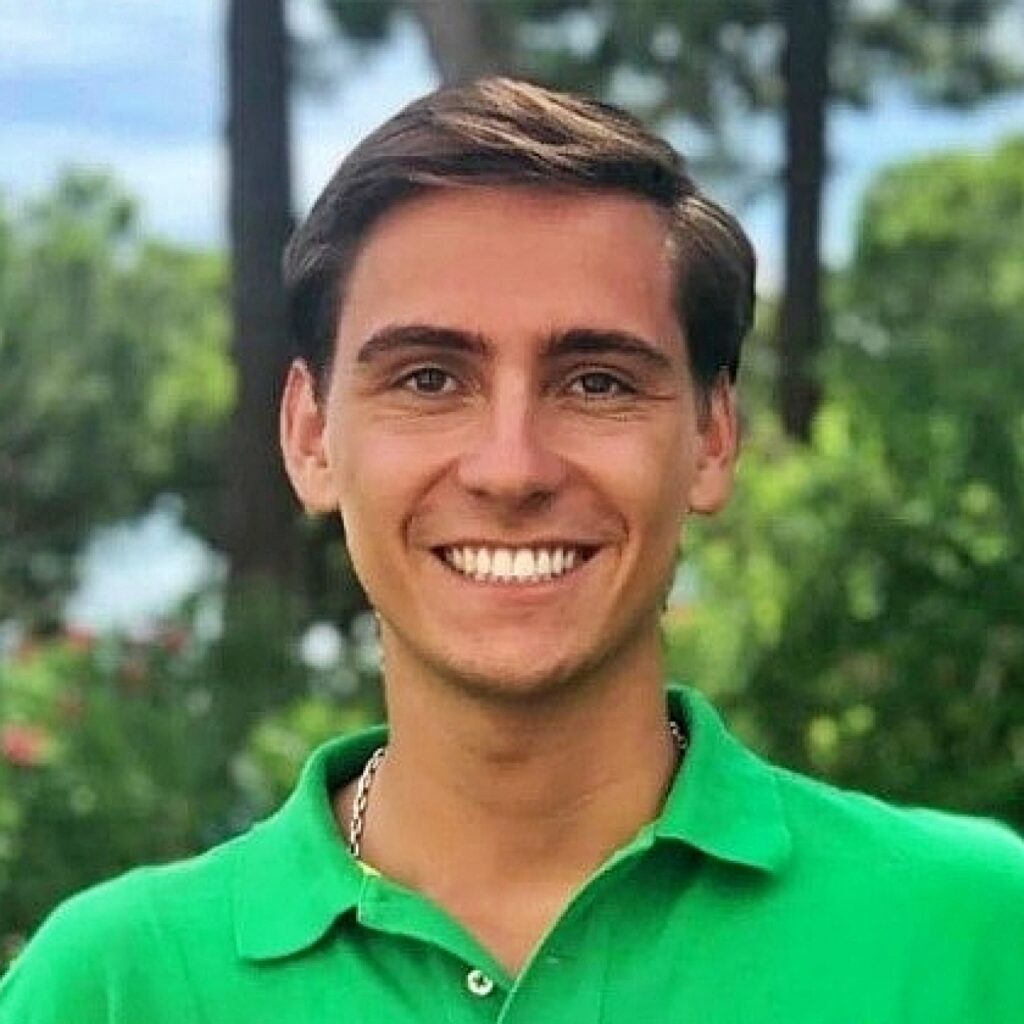
Francisco V. C. Taveira Pinto is a PhD researcher at the Faculty of Engineering of the University of Porto (Portugal), graduated from the same institution. After finishing his Integrated Master’s Degree, Francisco has integrated the Engineering and Research Area at the Hydraulics and Water Resources Institute (IHRH), developing his engineering, physical and numerical modelling skills. His scientific research focuses on coastal protection structures, coastal erosion, scour phenomena near segmented detached structures, climate change and composite modelling. With respect to his professional activities, Francisco has been working under several projects namely: “Risk Characterization Study and Intervention Programme for the Protection of the Ofir’s Sandspit and Cávado’s river mouth”, “ATLANTIDA – Platform for the monitoring of the North Atlantic Ocean and tools for the sustainable exploitation of the marine resources” and more recently “Port Loyola Cruise Terminal, Model-based research”.
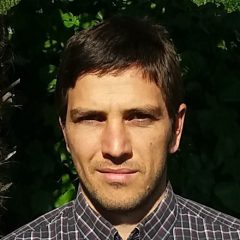
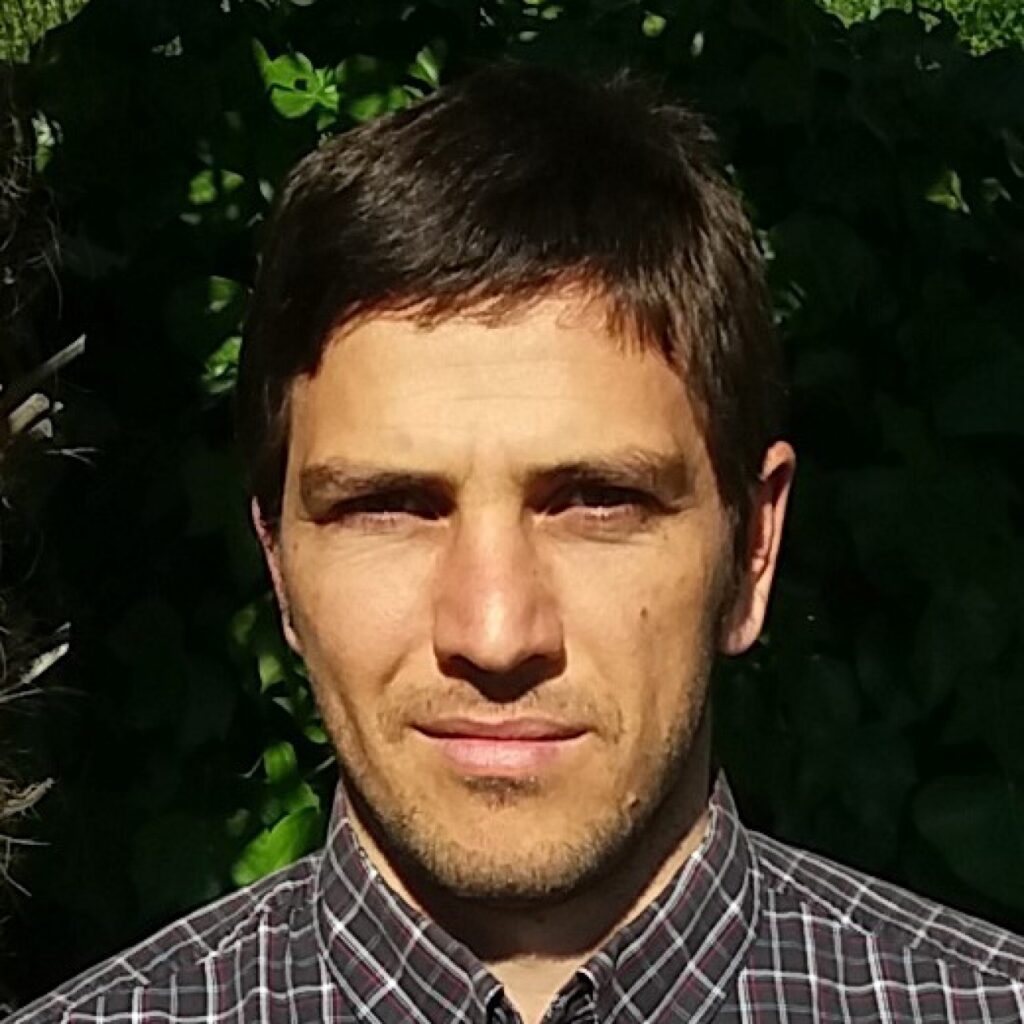
Dr. Gianmaria Giannini is a researcher at CIIMAR and the Faculty of Engineering, University of Porto (FEUP), specialized in marine engineering, science, and technology. He holds a PhD in offshore engineering, focusing on wave energy converters, and an MSc in Offshore renewable energy (ORE) from the University of Strathclyde (UK). Currently, he leads a 6-year project titled ‘Multidisciplinary Analysis and Design of Wave Energy Converters,’ funded by FCT and supported by FEUP. With 30+ scientific papers, he contributed to 6 marine energy projects and spent 2 years in private ORE companies. His interests include science, electronics, programming, climate, and sustainability.

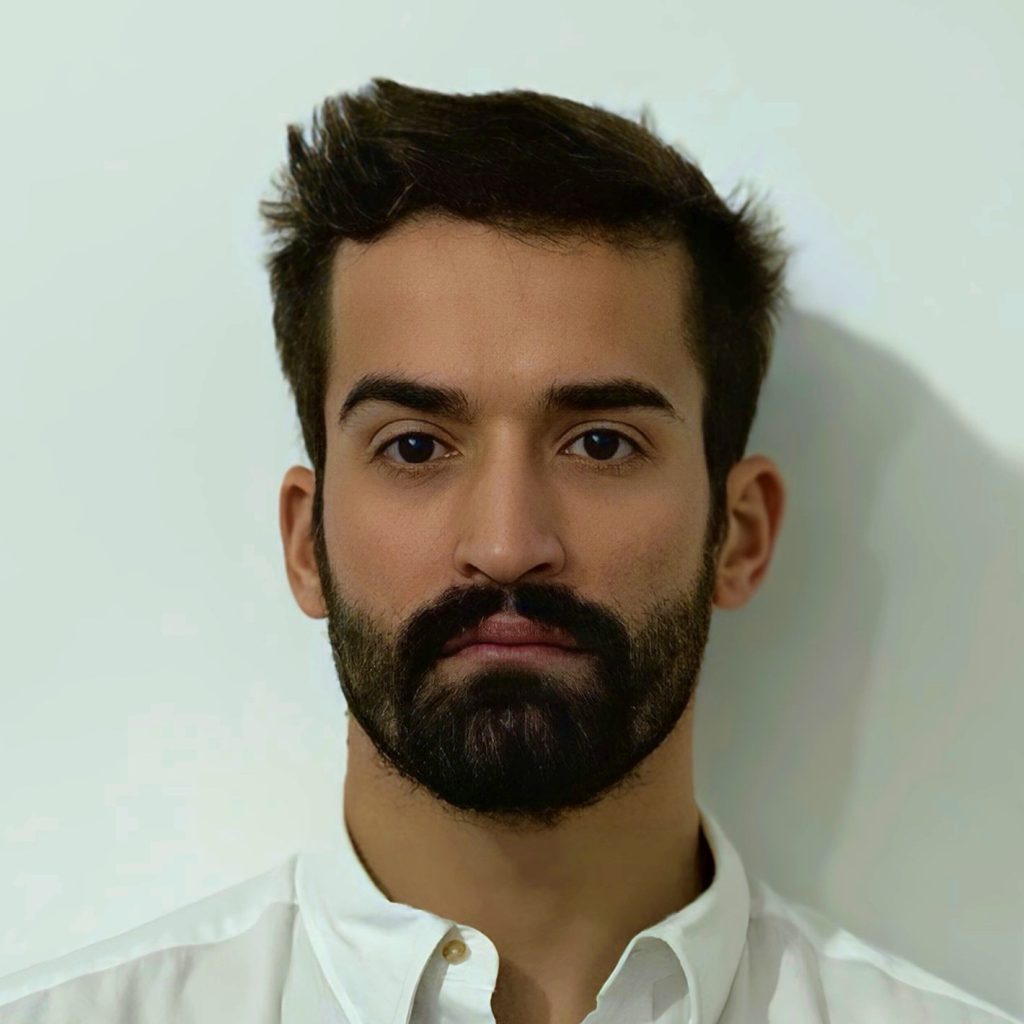
João Ricardo de Sá Chambel is a PhD researcher and Civil Engineer at the Faculty of Engineering of the University of Porto (FEUP), graduating from the same institution. He developed a master’s thesis project on the topic of Offshore Wind Turbine Foundations. After finishing, he continued as a research fellow at the IHRH – Hydraulics and Water Resources Institute and FEUP, where he had the opportunity to work on several projects such as: Deviation Infrastructure for Rio de Vila (Metro do Porto), Detached Breakwaters and Artificial Reefs for the Carneiro Beach (Porto), Coastal Erosion at the Esposende Sandspit (Esposende), the ORACLE project – Offshore Risk Analysis for Climate Change and Lifetime Extension of offshore foundations, and the POSEIDON project – Damage Prediction and Design of Scour Protections in Complex Foundations for Marine Renewable Energy. He developed skills in physical & numerical modelling, offshore foundations, risk & reliability analysis, scour phenomena, and climate changes. He also worked as a Civil Engineer at the company Noraqua (Porto), while still maintaining research cooperation with his previous team. In 2021, he obtained a PhD grant for the topic of Optimization of Scour Protections for Hybrid Offshore Foundations with Complex Geometry at FEUP and Oregon State University (EUA). During his short career, he was privileged to work and learn from recognized engineers in his field, namely with Francisco Taveira Pinto (FEUP), Pedro Lomonaco (Oregon State University), Tiago Ferradosa (FEUP), Paulo Santos (FEUP), and Mario Welzel (TU Braunschweig). His interests are extended to Offshore Structures & Foundations, Marine Renewable Energy, Scour (Protections), and Coastal Erosion.

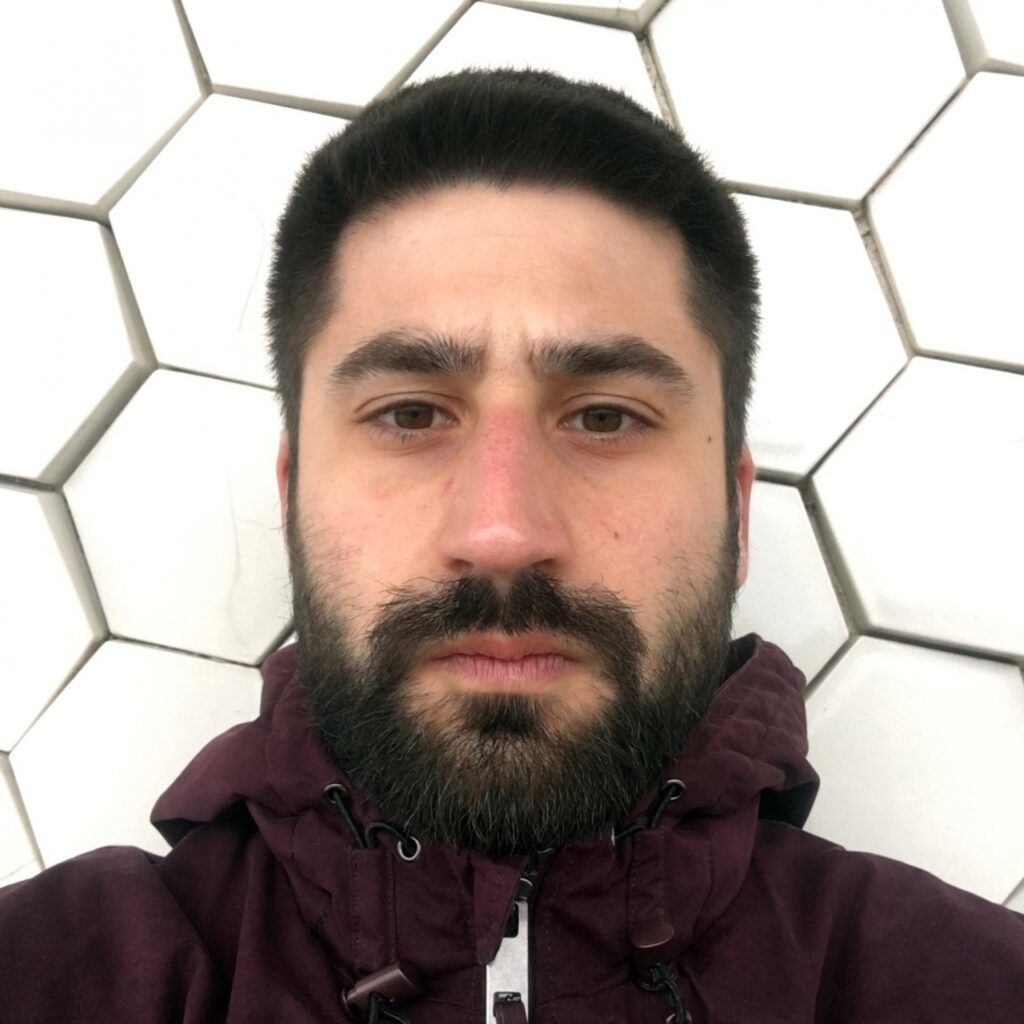
Victor Ramos (PhD) research focuses on the field of marine renewable energy (wave and tidal stream energy), dealing with some crucial aspects such as: resource, characterisation, performance of different technologies of energy converters (tidal and wave energy converters) and the potential impacts on the marine environment (wave climate, transient and residual estuarine dynamics, sediment transport and turbulence conditions).

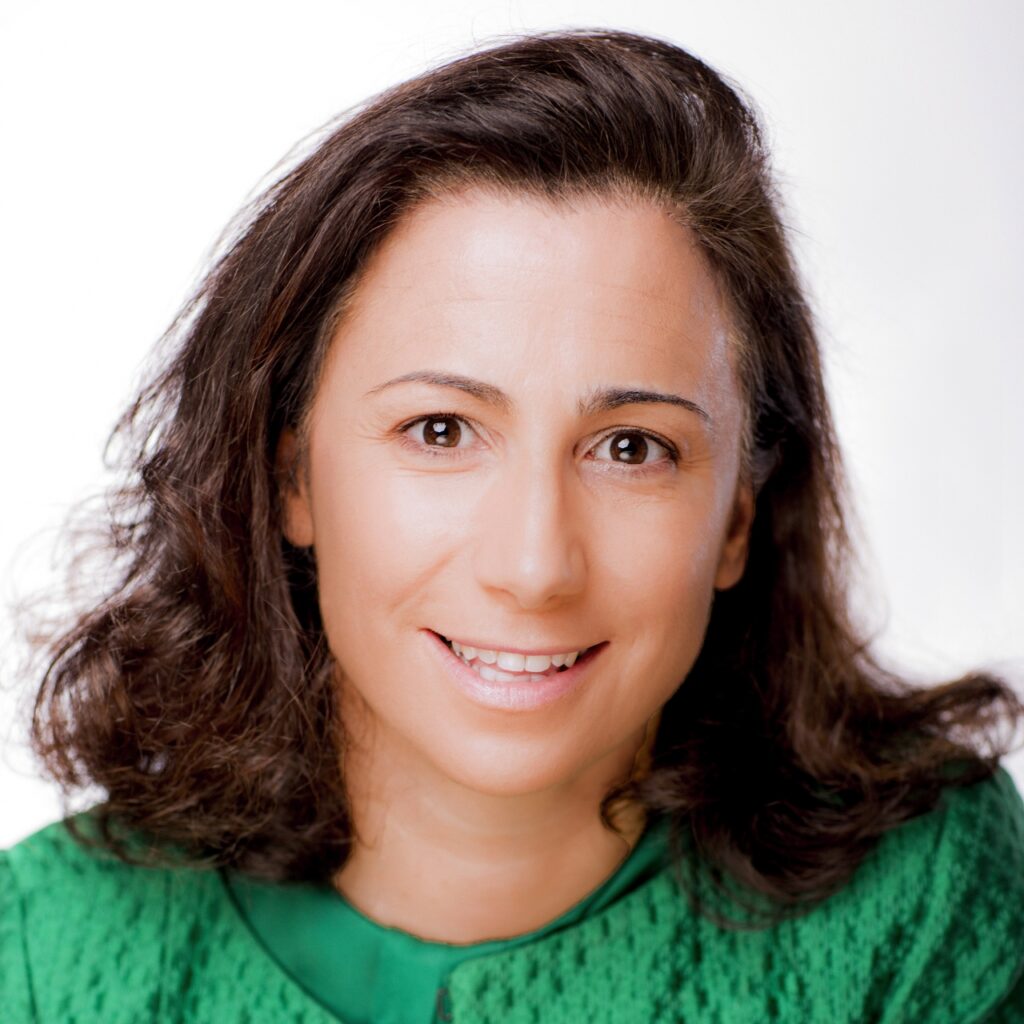
Luciana das Neves holds a PhD degree in Civil Engineering from the UPorto. She is an Engineer-Advisor at IMDC nv – Belgium and a Guest Assistant Professor at UPorto – Faculty of Engineering in the fields of hydraulic engineering and fluid mechanics. She is an experienced project manager having managed and carried out numerous projects around the world related to coastal climate risk and resilience and marine engineering. Luciana specialises in designing and implementing projects concerned with coastal protection and defence structures and strategic coastal planning and management. Her research interests involve climate change adaptation, resilience in development strategies and nature-based solutions in flood- and coastal-risk management.
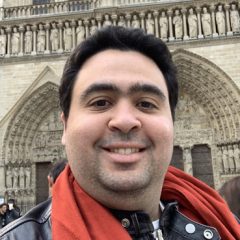
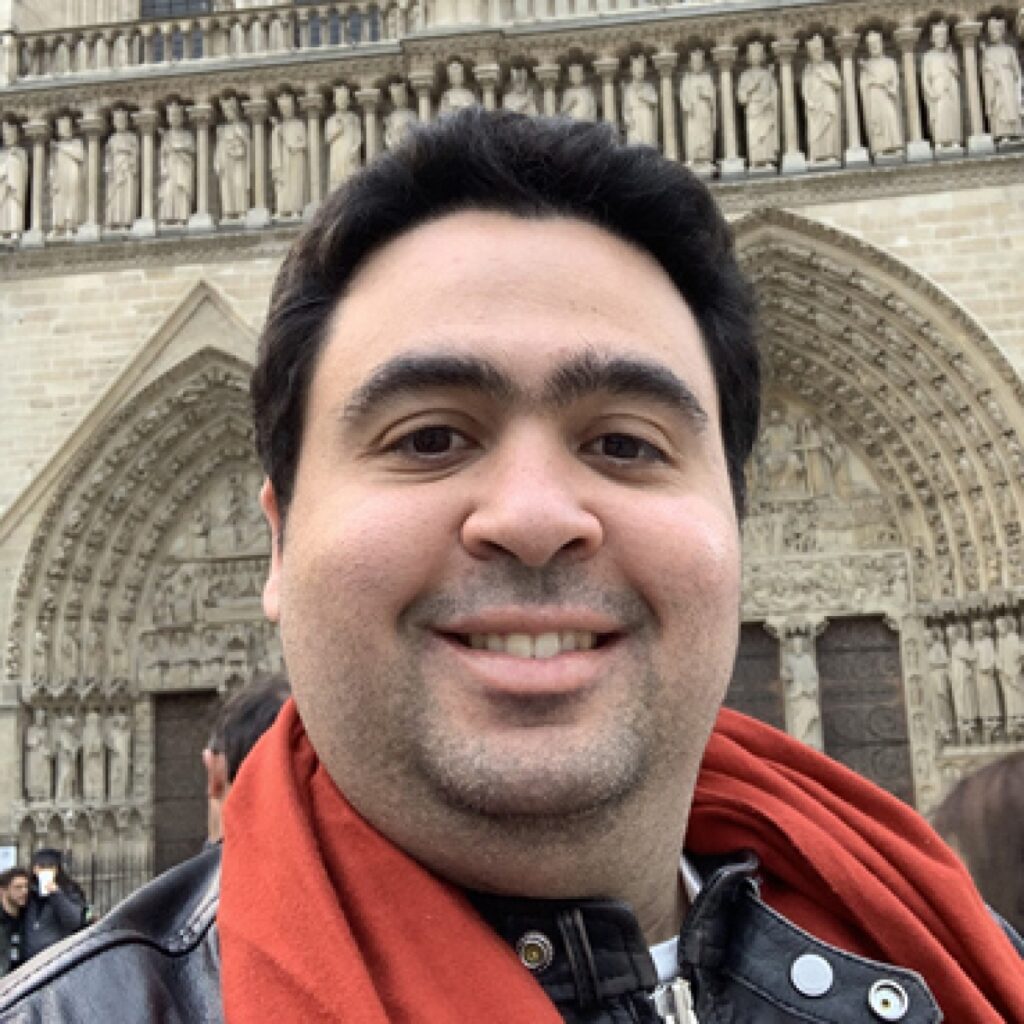
Luiz Paulo Pinto Ferreira holds a Master degree in Civil Engineering from the UPorto, a Mastère Spécialisé in Ouvrages Maritimes et Portuaire from ESITC Caen, MBA in Project Management from FRB|Devry Brasil, PMP-PMI certificated and a bachelor degree in Civil Engineering Universidade Federal da Bahia. He is currenlty a PhD student at UPorto – Faculty of Engineering in the fields of hydraulic engineering. He is an experienced project manager having managed and carried out numerous construction projects in Brazil related maritime ports and river dredging and participated in physical modelling of coastal protection structures at Waterbowukundig Laboratorium. His research interests involve climate change adaptation, coastal dynamics, wave structure interaction and wave behaviour in very shallow waters.
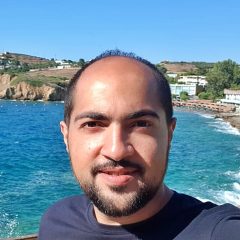
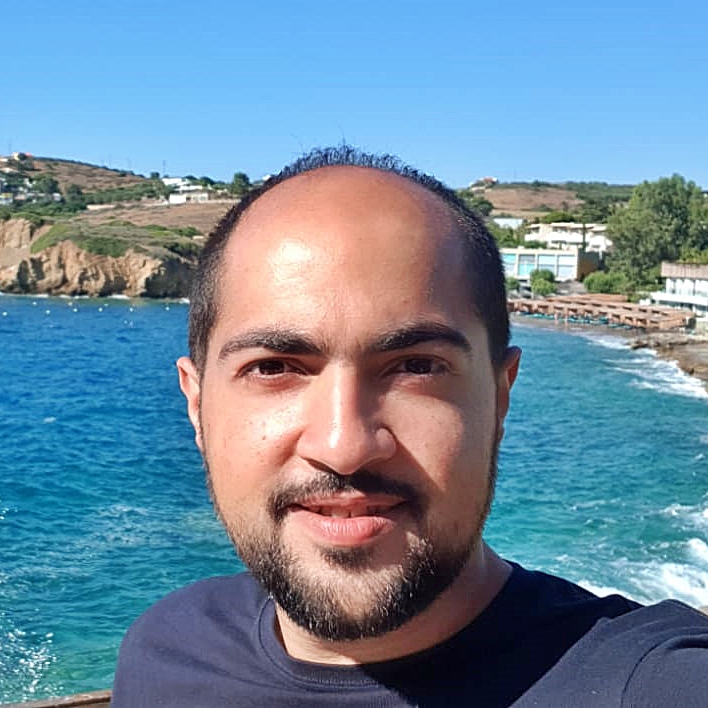
Mahmoud is a PhD student and researcher at UPorto FEUP. He earned his bachelor’s degree in Civil Engineering from Egypt in 2016. In 2021, he got his Master’s degree in coastal engineering where he developed a 2D coastal morphological model on MATLAB. With a keen interest in numerical modeling and the integration of machine learning within coastal engineering, Mahmoud is exploring innovative approaches. In his ongoing doctoral research, he is studying the possibility to use artificial intelligence to surrogate numerical models, aiming for enhanced accuracy and computational efficiency.
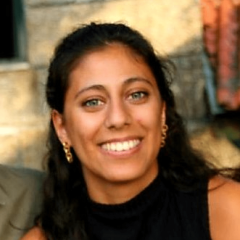
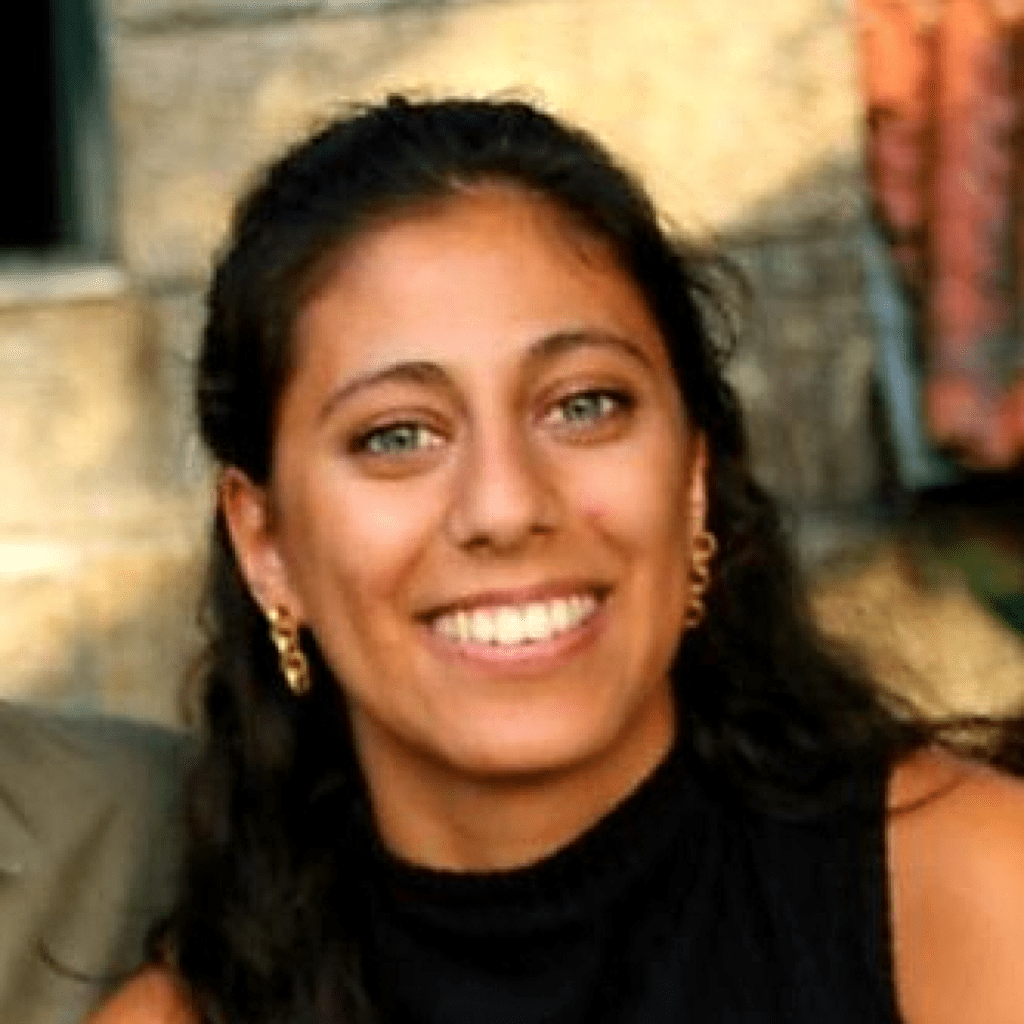
Maria Francisca Sarmento is a researcher ate Uporto (Portugal) who graduated from the same institution. She developed her master thesis project in FEUP with a partnership of Ciimar about the effect of Climate changes in Douro’s estuary. Her master thesis project focused on 2D numerical modelling in OpenTelemac Mascaret software to simulate several extreme scenarios and evaluate their hydrodynamic and morphodynamic effects in the estuary. After graduating, she continued her research in collaboration with Ciimar in the project ATLANTIDA on the topic of climate change, where she investigates the effects of NBM – Nature Based Methods on the Cavado´s river mouth hydrodynamics and morphodynamics.
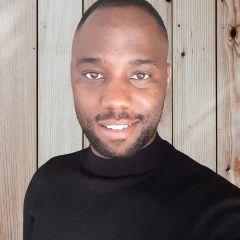
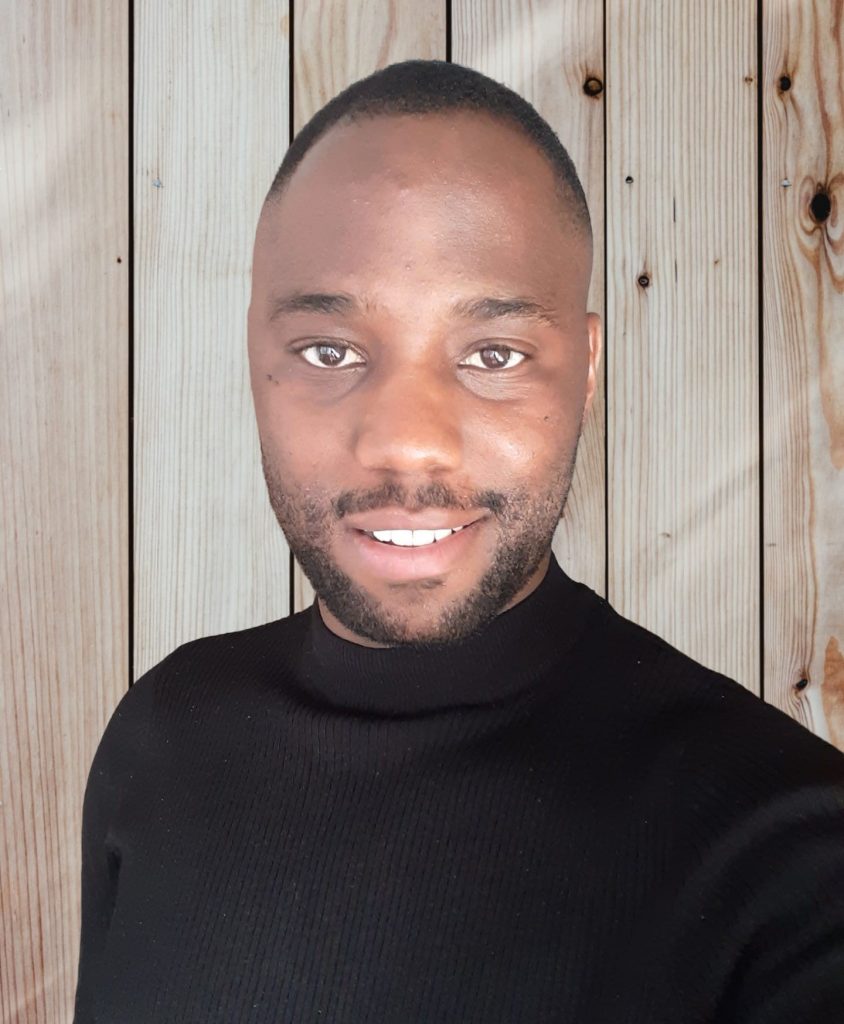
Moeketsi Lawrence Duiker is an MSc graduate from the University of Porto, FEUP, and a Ph.D. student in Civil Engineering, Hydraulics section, at the same institution. A member of CIIMAR, he focuses on coastal defense structures, integrating machine learning to enhance coastal resilience and safety.


Paulo Rosa Santos is Associate Professor with Habilitation of the Department of Civil Engineering of the Faculty of Engineering – University of Porto. His main research field is the application of physical and numerical modelling to the study of offshore, port and coastal related topics. In the last 17 years, he collaborated in more than 45 R&D projects and consultancy studies in those fields. Supervisor/Co-supervisor of 35 finished M.Sc. Dissertations and 9 PhD students (ongoing) in the field of coastal engineering and marine renewable energy. Author of over 150 papers published in peer-reviewed scientific journals and conference proceedings (38 papers in Q1 journals). Chartered Engineer (2004), Senior Member (2013) and Specialist in Hydraulics and Water Resources (2019) by the Portuguese Engineering Council. Member of the Board of the Portuguese Water Resources Association – North Branch. PI, Co-PI or Researcher of 9 R&D projects in the field of ocean renewable energies and coastal engineering in the last 5 years (e.g., Atlantida, WEC4Ports, PORTOS, WECANet, ORACLE, SE@PORTS, HYDRALAB+, OPWEC, I.nano.WEC).
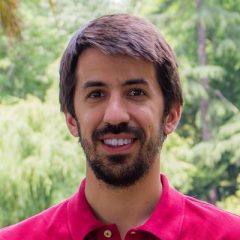

Rui Figueiredo is a researcher at CIIMAR. His main research interests include natural hazard damage and loss modelling, risk assessment, and risk management, with a focus on hydro-meteorological phenomena. He has (co-)authored, among other publications, over 20 articles on these topics in Web of Science-indexed scientific journals.
Rui graduated in Civil Engineering from FEUP in 2006. Between then and 2013 he worked as a multidisciplinary engineering designer and project manager, having participated in over one hundred national and international engineering projects. In 2015, he obtained his Master’s degree in Risk and Emergency Management from the University School for Advanced Studies IUSS Pavia, Italy. In 2018 he obtained his Doctoral degree from the same institution within the Understanding and Managing Extremes PhD program.
Rui has participated in several research projects, including as Principal Investigator of a 2-year project supported by the highly competitive Disaster Risk Financing Challenge Fund. He has also participated in the development of risk models for several international stakeholders involved in disaster risk management activities.
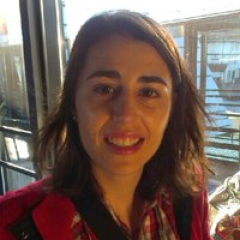
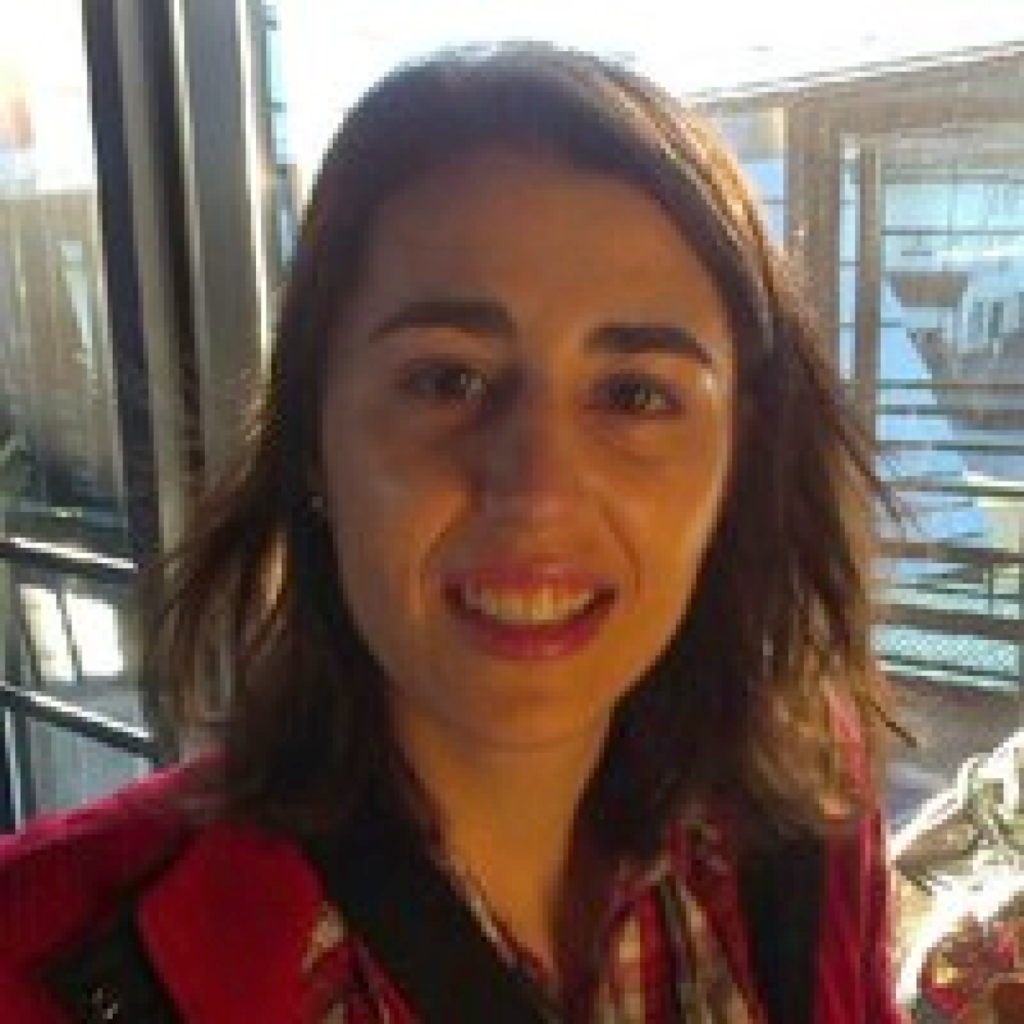
Sara Oliveira Pinto is a Senior Researcher in Renewable Energy at Equinor and CIIMAR and a PhD researcher at UPorto, where she graduated with a Masters developed in collaboration with Instituto Nacional de Engenharia Civil (LNEC) and Consulmar, on the topic of perforated vertical harbour structures: design and experimental evaluation. Sara has been working in the Oil & Gas sector as a Subsea Engineer focusing in major capital projects and currently while still at Equinor, as a Senior Researcher in Renewable Energy, working mainly with solar energy, as a technical advisor to solar energy projects, performing market research of new & niche solar energy solutions, mainly within floating solar and in solutions & strategies for operation and maintenance of utility-scale solar parks. During her work she has collaborated with various research entities such as MIT Energy Initiative (MITei), National Renewable Energy Laboratory (NREL), Institutt for energiteknikk (IFE) and Energy Research Centre of the Netherlands (ECN) with a main focus as radical innovation within the renewable energy domain. She is currently undertkaing her doctoral studies on the topic of wave energy converters, identifying a niche market enabler to launch commercial feasibility of the wave energy sector, and at a later stage proposing a novel hybrid wave energy converter.

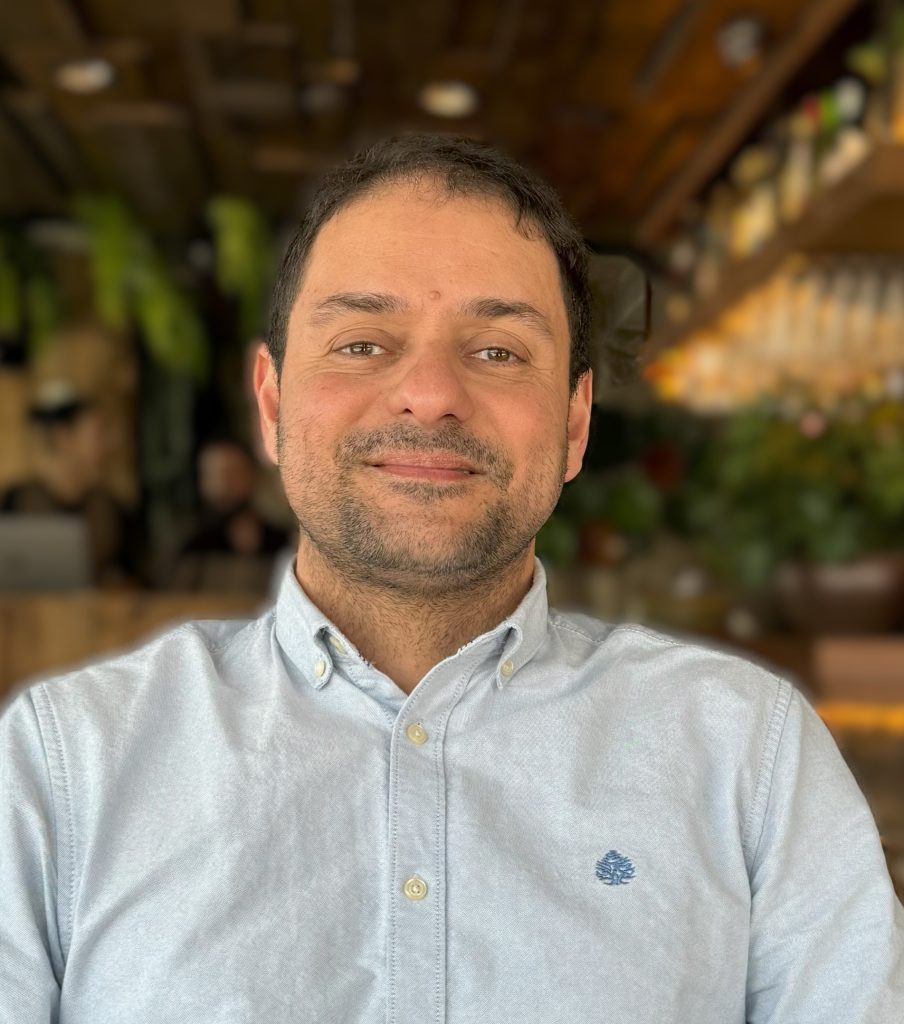
Sérgio Salgado was born in Vitória, Espírito Santo, Brazil, where he obtained a bachelor’s degree in civil production engineering. He holds a master’s degree in Hydraulic Engineering and Sanitation from the São Carlos School of Engineering at the University of São Paulo (EESC-USP). He has considerable experience in the public sector in Brazil, including work in the areas of environmental impact assessment and water resources management. He is particularly noted for his contributions to the National Water and Sanitation Agency (ANA). At ANA, her work centered on the regulation of dam safety and the management of water transfer services. He employs a range of tools, including HEC-HMS and HEC-RAS, to conduct analyses, including those evaluating the potential failure of dams. He is currently pursuing his PhD at the Faculty of Engineering of the University of Porto (FEUP). Since 2023, his research has been supported by the Foundation for Science and Technology (FCT) and is focused on the classification and safety of dams. The primary objective of his work is to identify deficiencies in the downstream damage assessment processes and propose enhancements to safety methodologies and policies.
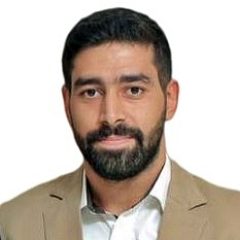
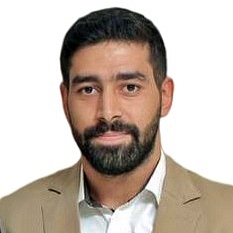
Seyed Shahabedin Khalooei is a researcher at the Faculty of Engineering of the University of Porto. I am presently working in the research team of the project “WEC4Ports – A Hybrid Wave Energy Converter for Ports” (OCEANERA/0004/2019), funded by FCT/MCTES through national funds (PIDDAC). I got my MSc degree from the University of Tehran the most prestigious university in Iran and conducted my MSc thesis on the topic of computational fluid dynamic (CFD) titled “Experimental investigation on Wave-Induced Vibrations (WIV) of The Tandem Circular Cylinders.”. I was also at the Hydraulic lab of the University of Tehran as a research assistant.
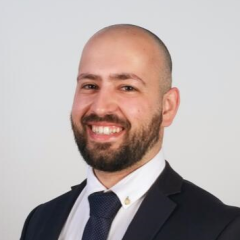
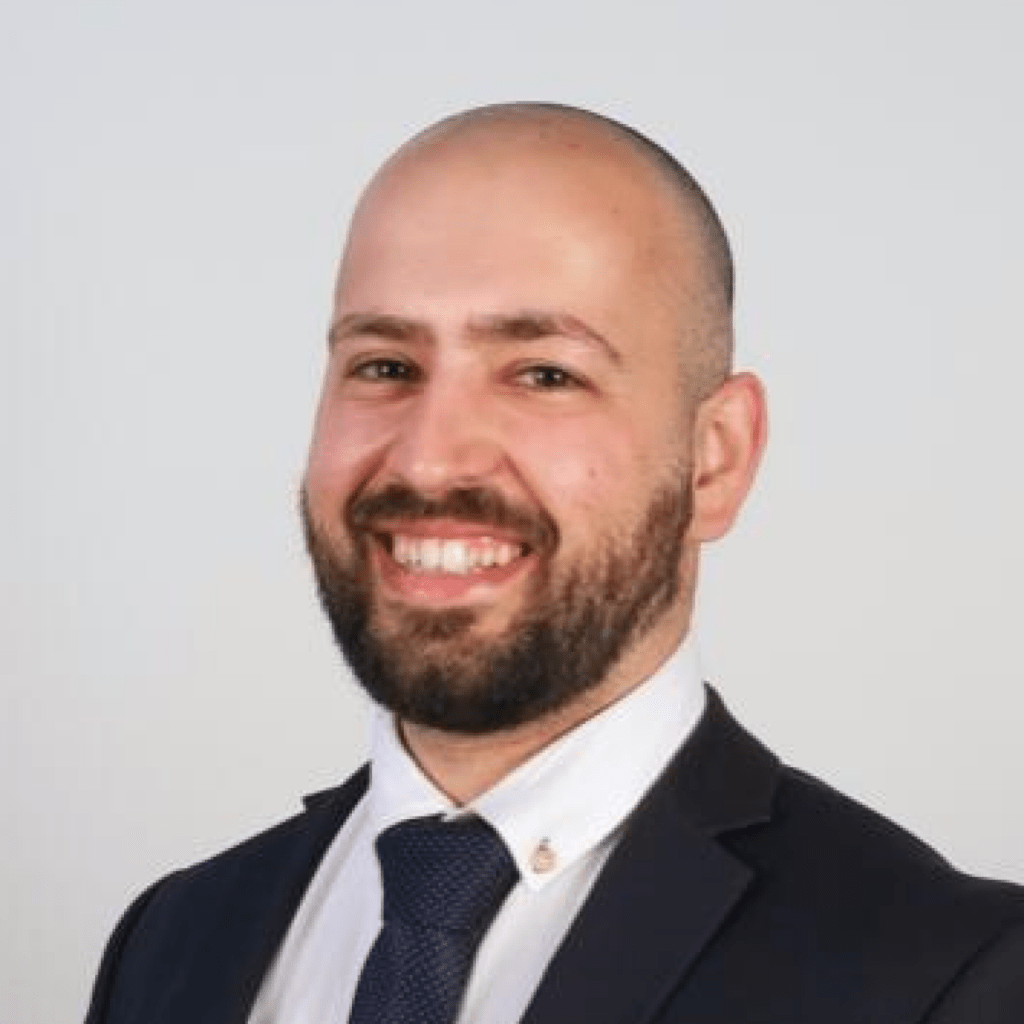
Tiago Fazeres Ferradosa is a Professor at Faculty of Engineering of University of Porto and researcher CIIMAR. Tiago is currently responsible for the R&D unit Offshore Structures & Foundations at the Marine Energy Group. Tiago was an MSc. researcher at University College London and developed his PhD in UPORTO on the topic of reliability analysis of optimised scour protections for offshore foundations. He is also involved as responsible, co-responsible and team member, in the several R&D projects related to offshore engineering and marine renewable energy research, such as MARINET proposal 61; HYDRALAB+ (Proteus proposal); ORACLE; POSEIDON and i.nano.WEC. He performs supervision activities of doctoral and master degree students in civil engineering at the University of Porto and has been responsible for the organisation of more than 45 conferences, courses, symposia and other scientific and professional events. He is the editor of the IAHR Newsflash Europe and co-Editor in Chief of Maritime Engineering (ICE). He acts as member of the editorial panel in 17 international peer-reviewed journals and was Guest Editor of SI in Renewable Energy (Elsevier) and reviewer in other 27 international peer-reviewed journals. Tiago is the author of more than 56 scientific journal peer-reviewed publications (indexed in Scopus and WoS) and founder and co-organiser of the IOSD course series. He was President of the IAHR Portugal Young Professionals Network, the Coordinator of the Young Professionals of the Portuguese Association of Water Resources and elected member of the Monitoring Committee of the Civil Engineering Doctoral Program between 2016 and 2018. He is the Portuguese appointed member of the Technical Committee 213 – Scour and Erosion of the ISSMGE. Dr. Tiago was also the awarded researcher of the APRH best PhD thesis of 2018/2019, the Young JMSE researcher award of 2021, Best JMSE Paper award 2022 and co-winner of the Halcrow Prize of the Institution of Civil Engineers in 2022. He acts as an external evaluator at Stavanger University (Norway) and was the President of the Specialized Commission Water and Energy of APRH from 2022-2023 and is currently member of the board of APRH. Currently, is also member of the Executive Committee of the Civil Engineering Department of the Faculty of Engineering of UPorto.
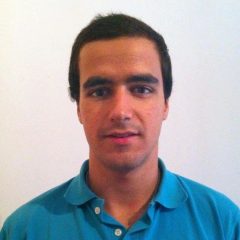
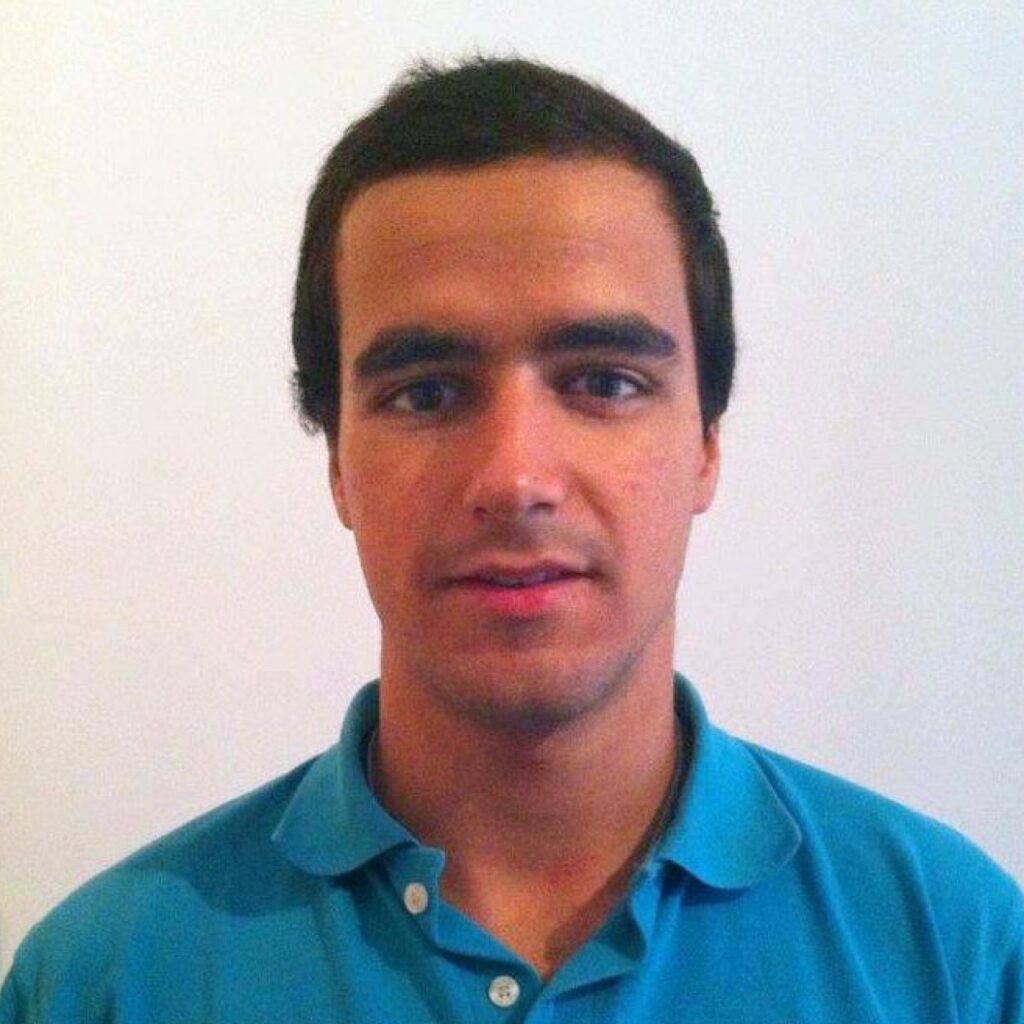
Tomás Calheiros Cabral is a PhD student at the Hydraulic Structures and Marine Energy Group of FEUP/CIIMAR , who obtained a Master’s Degree from the same institution in Civil Engineering – Hydraulics, in 2018. He developed his master thesis project in entrepreneurial environment, on the topic of breakwater-integrated wave energy converters. After graduating, he continued as a research fellow in the SE@PORTS project. After the end of this project, he carried out his research on Marine Renewable Energy, particularly in ports, as a research fellow on the PORTOS project. Having obtained a PhD grant in 2021, he started his PhD on the development of a hybrid WEC for breakwater integration.
During his research fellowships and PhD, he participated in multiple research projects related to Marine Renewable Energy and coastal protection. He has extensively expanded his expertise in physical and numerical modelling of coastal and offshore structures through several projects, mobility programs, training schools and workshops abroad. He is experienced in physical model testing of MRE and coastal protection structures, and in the use of OpenFOAM and DualSPHysics for engineering applications. Moreover, he taught in multiple didactic events for students (Montra UP, Universidade Junior) and industry-aimed (Course “Marine Renewable Energies and their integration in Ports”). Tomás is the (co-)author of 17 journal and conference publications on various topics.
Taveira-Pinto, F., Rosa-Santos, P., Fazeres-Ferradosa, T.
2020Renewable Energy, 150: 1160-1164Lopez, I., Carballo, R., Taveira-Pinto, F., Iglesias, G.
2020Renewable Energy, 145: 1334-1347Moreira, A., Leroy, A., Violeau, D., Taveira-Pinto, F.
2020Journal of Hydraulic Engineering, 146 (2), 3119001Fazeres-Ferradosa, T., Welzel, M., Schendel, A., Baelus, L., Rosa-Santos, P., Taveira-Pinto, F.
2020Coastal Engineering, 103671Rodriguez, C.A., Rosa-Santos, P., Taveira-Pinto, F.
2020Ocean Engineering, 199: 107046Fazeres-Ferradosa, T., Taveira-Pinto, F., Romão, X., Vanem, E., Reis, M.T., das Neves, L.
2018Eng. Fail. Anal., 91: 291-305Website by: Glitz Design